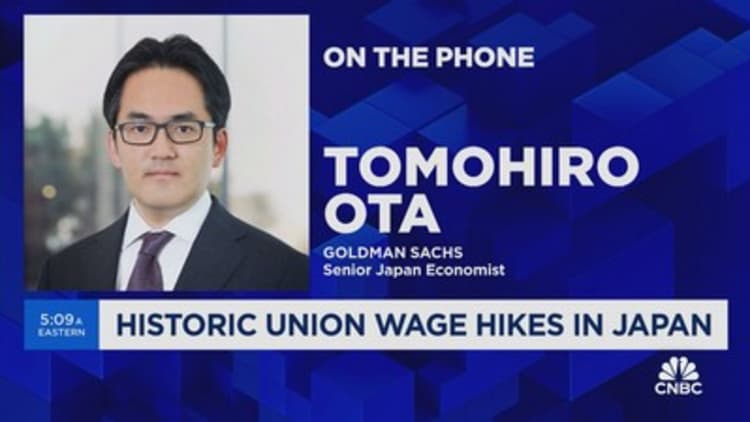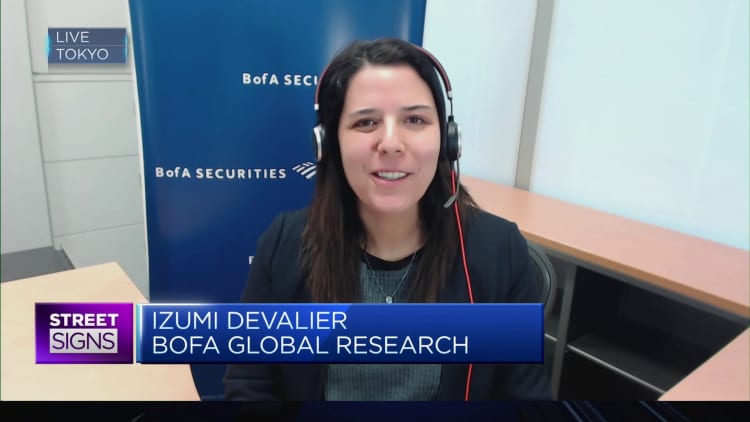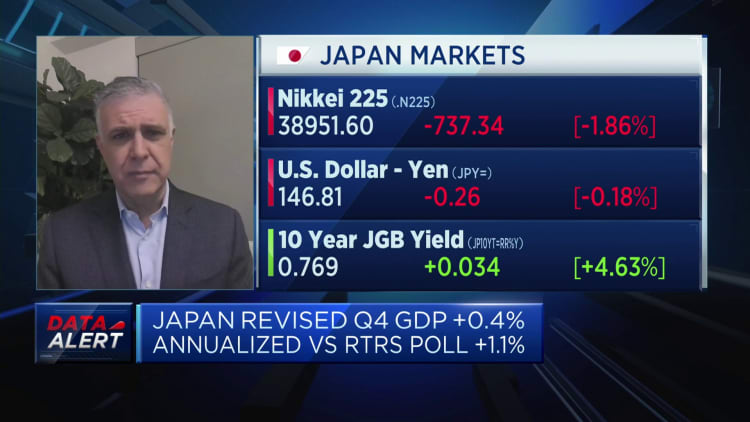Japan’s ‘shunto’ wage negotiations hit fever pitch this week. Here’s why they matter


Akihiko Matsuura, president of UA Zensen, second left, raises his fist with members of the union during a rally for the annual wage negotiations in Tokyo, Japan, on Thursday, March 7, 2024.
Kiyoshi Ota | Bloomberg | Getty Images
At Japan’s highly anticipated “shunto” spring wage negotiations this year, the world’s largest automaker
This is far higher than the 2023 increase of more than 3%.
It marks a significant breakthrough in Japan, where real wages have stagnated since a banking crisis in the 1990s.
Why does it matter?
The Bank of Japan has pursued a policy of aggressive monetary easing in an attempt to stimulate prices after Japan fell into deflation and prolonged economic stagnation. However, the country has struggled to shake off attitudes surrounding stagnant wages.
Japan’s cultural focus on job security above higher pay is often blamed for stagnant wages.

Almost a third of Japan’s workforce was engaged in part-time employment — often seen as a drag on wages — in January, according to the latest data from the country’s Ministry of Health, Labor and Welfare.
Meanwhile, Japan’s headline inflation averaged 3.2% last year, but it slowed to 2.2% in January.
There have also been signs that the recent inflation has crimped domestic demand and private consumption in Japan.
Japan’s economy averted a technical recession last week, bolstered by strong capital expenditure. However, private consumption fell 0.3% quarter on quarter — more than the provisional estimate of a 0.2% decline.
What’s ahead?
While Japan’s large corporations have the capacity to accede to a wage bonanza given their record profits, all eyes will be on the small and medium businesses — which account for up to 70% of jobs in the world’s fourth-largest economy.
If major unions were able to get wage increases to about 5%, it would be enough to satisfy the BOJ that wages are rising and prompt them to shift monetary policy, Thierry Wizman, global interest rates and currencies strategist at Macquarie Group, told CNBC Monday.

Wizman said the change in policy would occur during the bank’s April meeting, but said that “risk has shifted to a March shift in policy.”
Meanwhile, Goldman Sachs economists led by Tomohiro Ota wrote in a Tuesday note that they still believe the BOJ will terminate negative interest rates in April.
“While a March rate hike cannot be ruled out, we believe that the BOJ’s communications at this juncture are not clear enough to justify assuming the March hike as the base case scenario,” they wrote.









